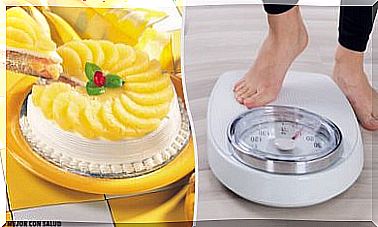Tips For Dealing With Postpartum Depression And Stress

Postpartum depression is d a most common psychological disorder among new mothers. However, there are ways to deal with a postpartum depression.
However, it is not always correctly diagnosed and very few people know what to do to prevent a postpartum depression. Therefore, it is important to be able to recognize the signs and symptoms of it. That way, you can quickly intervene if necessary.
What is a postpartum depression?
Causes
We still do not know exactly what triggers the symptoms of postpartum depression. However, there are many circumstances during pregnancy that can affect the mother’s psyche in the first months of the baby’s life:
- Hormonal changes during and after pregnancy (a decrease in estrogen and progesterone levels).
- Work leave and changes in personal circumstances.
- Changes in the body after birth. Some women’s self-esteem drops markedly after childbirth. This is due to the natural changes that a body undergoes during pregnancy and after birth.
- Lack of free time.
- Sleep disorders.
- Doubt when the new mother is not sure she has what it takes to care for and raise a child.
Risk factors

Some women are more likely to get a postpartum depression. Those women may have one or more of the following risk factors:
- A story of depression or postpartum stress.
- Bipolar disorder, depression or anxiety just before pregnancy.
- Psychological disorders in the family.
- Having suffered a traumatic event during pregnancy.
- Medical complications during pregnancy or childbirth. For example, a congenital disease in the baby, a complicated birth, premature birth or acute caesarean section in an emergency, etc.
- Unplanned or unwanted pregnancy.
- Economic problems.
- Lack of support from her closest, whether it is partner or family.
- Use of drugs, alcohol or tobacco during pregnancy.
Also read: Tips for traveling far with a baby
Symptoms of a postpartum depression
The symptoms of a postpartum depression can interfere with a mother’s ability to take care of her baby and herself. The first signs are often seen in the first weeks after birth. However, they can begin up to a year after birth.
The most common are:
- Feelings of hopelessness, guilt and sadness.
- Sudden mood swings.
- A feeling of extreme anxiety and worry.
- Inability to sleep or to sleep too much.
- Lack of an emotional bond with her baby and maybe even rejection.
- Loss of interest in activities she used to enjoy.
- Headache and general fatigue.
- Lost appetite.
- Thoughts of harming the baby or himself.
Also read: 4 ways depression affects the brain
To prevent and manage a postpartum depression
You can reduce your chances of getting a postpartum depression by following certain guidelines.
If you think you or someone close to you is suffering from this condition, contact your doctor. They can refer you to the appropriate professional so you can get treatment.
Lack of sleep makes it difficult to deal with a postpartum depression

During and after pregnancy, it is important that you rest as much as possible. You should also take advantage of the time your baby sleeps or when someone takes care of it for you. Learn to take advantage of these moments for other things or to just relax a bit.
Fatigue benefits neither the mother nor the baby.
Being emotionally stable and relaxed will calm the baby and they will sleep longer. Then the new mother can also rest longer.
It is important that mothers spend all their free time resting, instead of spending it on less important tasks.
Tasks and leisure
That said, the division of tasks into a family is paramount. This is not only for a mother’s physical health, but also for her psychological well-being.
It is necessary to distribute and plan the tasks required to care for the baby. It is now that her partner or family needs to get started and help. In a loving relationship, both parties should still be able to have free time to care for their own needs.
Exercise to deal with a postpartum depression

Exercise during and after a pregnancy helps new mothers promote a more stable mood.
It also reduces their chances of a postpartum depression. This is because exercise releases endorphins and therefore helps reduce stress and anxiety.
- Start with light and controlled exercises and then increase the intensity.
Turn down your requirements
A high percentage of women who suffer from postpartum depression are perfectionists and do not allow for mistakes. You need to keep in mind that no new parent knows exactly what to do. Practice makes perfect, especially when it comes to babysitting.
You should not compare yourself to the stereotype of a perfect mother. It will only lead to frustration and guilt. This stereotype is extremely unrealistic and places immense demands on mothers.
Also, remember that you need to keep your life organized in order to make the most of your time with your baby.
Be sure to talk to your doctor about any physical or emotional changes you may be experiencing so that they can diagnose and treat you in a timely manner.









